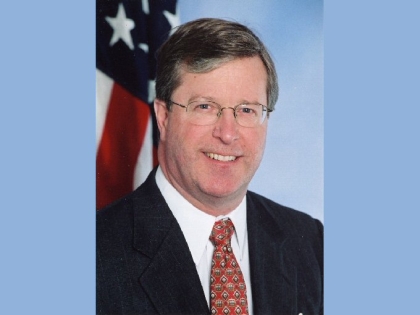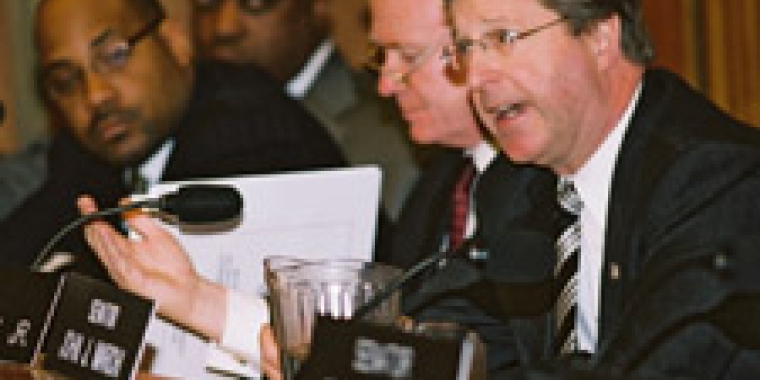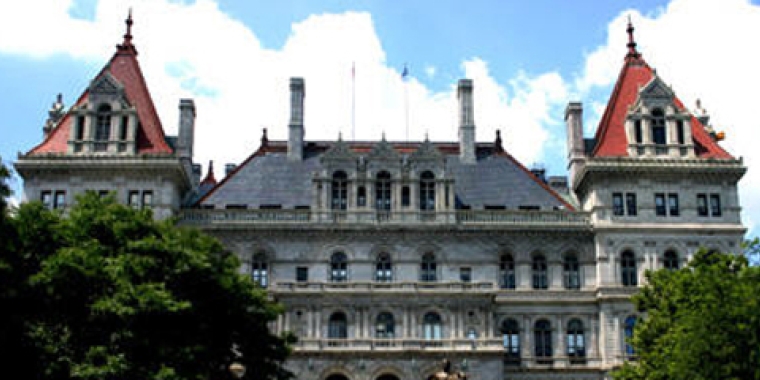
State Senate Budget Plan Focuses On Property Tax Relief, Economic Growth

Albany, N.Y.-- The New York State Senatehas set the stage for negotiations over a final 2006-07 state budget byapproving its version of this year’s state budget that Senator George H. Winner, Jr. (R-C, Elmira) said emphasizes two overriding challenges facing the Southern Tier-Finger Lakes region he represents: providing financial relief to localities and local property taxpayers, and regionwide economic growth.
"The Senate’s focus on a long-term commitment to local property tax relief and on policies that produce even more future tax relief, like combating Medicaid fraud, must be the overriding focus of this year’s state budget. This tax relief goes hand in hand with economic growth for Southern Tier-Finger Lakes communities," said Winner, noting thatlegislatorsare convening joint budget conference committees todayto begin settling differences between the two houses.
The Senate budget, which totals $111.8 billion, calls for more than $6.4 billion in tax cuts over the next three years, not a penny more in new taxes or fees by rejecting the more than $450 million in higher taxes and fees proposed by Pataki, increasing state aid to education by $1.1 billion, and restoring important funds for health care.
Winner said that the Senate remains determined to adopt this year’s state budget on time for the second consecutive year.
"We cannot turn back the clock on on-time budget adoption," said Winner, who in February held a series of public informational meetings throughout the region to allow local residents to comment on this year’s state budget. Winner’s 53rd District includes all of Chemung, Schuyler, Steuben and Yates counties, and part of Tompkins County.
Winner believes the Senate budget plan reflects many of the overriding concerns expressed at the local meetings.
"Across-the-board tax relief, and the need for long-term job security and economic opportunities across the Southern Tier-Finger Lakes region and all of upstate New York," said Winner of themes commonly expressed at the local budget meetings. "That’s where the Senate budget is focused, and I’m extremely pleased that we have staked out our commitment to regional job security and tax relief. We believe that renewing a commitment to ongoing tax relief is the No. 1 priority in this year's state budget. It's a priority for local property taxpayers, for future job creation, for the quality of our communities and to keep alive the hope for sustained economic growth in upstate New York."
Winner singled out the following issues as highlights of the Senate budget:
> Property tax relief. Senate Republicans set the stage late last year for this year’s property tax relief discussion by proposing a 25-point plan called REBATE-NY that would provide $2.6 billion in new school and municipal property tax relief over the next three years. Pataki has proposed several property tax relief initiatives that parallel the Senate’s, including enhancing the existing school property tax relief program (STAR) for senior citizens and providing additional school tax relief to homeowners in the form of a direct property tax rebate;
> Health care. The Senate budget restores $625 million in important funding for hospitals and nursing homes. It restores proposed cuts in reimbursement rates to nursing homes, hospitals and the state’s pharmacy program. Additionally, the Senate budget increases the Medicaid rate to hospital emergency rooms from $95 to $150, a cost to the state of about $23 million. The Senate plan also extends Medicaid part D prescription coverage for seniors to December 1, 2006 instead of July 1, 2006, as proposed by the governor;
> Aid to Education. The Senate budget proposes a $1.1-billion increase in education aid in 2006-07. Funding is restored for BOCES aid and Teachers Centers;
> Aid to Localities. Under the Senate proposal, the region’s small cities would see the following state aid increases:
-- The city of Corning would see a state revenue sharing aid increase of $246,664 over last year. Under the Senate plan, Corning’s total aid would rise from last year’s $1,230,213 to $1,476,877 in 2006-07;
-- Elmira’s aid would increase $980,184, from $3,330,288 last year to $4,310,472 this year;
-- Hornell’s aid would increase $311,816, from $1,089,383 to $1,401,199; and
-- Ithaca would see a $653,422 increase, from $1,905,116 to $2,558,538;
> Combating Medicaid fraud. Winner said that he looks forward in 2006 to building on last year’s Medicaid reform success by implementing get-tough initiatives to combat what’s been widely reported throughout the past year as rampant abuse and waste in the system -- fraud that costs state taxpayers billions of dollars annually. The 2005-06 state budget contained a cap on local Medicaid costs that took effect this January and has already been credited with helping counties throughout the region and statewide significantly hold down and even reduce local property taxes for the coming year.
Winner stressed that the Senate plan authorizes a Chemung County Medicaid Demonstration Project that will allow the county to better manage and police local Medicaid services, potentially saving up to $10 million in local Medicaid spending without cutting recipient benefits. The Chemung County project, developed and advanced over the past few years by County Executive Tom Santulli following an intensive study of local Medicaid expenses that utilized state-of-the-art computer technology developed by the Horseheads-based Salient Corporation, would authorize an independent agency to help Chemung better administer, manage and monitor the provision of local Medicaid services.
"We believe that a county-level Medicaid reform demonstration project like Chemung's has the potential to save local property taxpayers millions of dollars annually," said Winner. "It should be given every opportunity to work.";
> Volunteer recruitment. The Senate plan also proposes the creation of an income tax credit for volunteer firefighters. The Senate is proposing a 25-percent credit of up to $750 for property taxes paid, which would replace existing real property tax exemptions provided to volunteer firefighters in some localities and save local taxpayers $39 million annually. Winner has already identified the need to help recruit and retain volunteer firefighters as one of the top issues for this legislative session. He’s currently sponsoring legislation known as the "Emergency Services Volunteer Incentive Act" that, in addition to a personal income tax credit, would advance a number of other incentives including allowing volunteers to participate in certain local public employee health insurance plans.
"This issue looms as an enormous burden to localities and local property taxpayers. Volunteer recruitment and retention needs to be a priority issue," Winner said;
> Energy assistance. Last September the Senate convened a special session and approved legislation to provide assistance, in the form of a heating fuel tax credit, to senior citizens statewide to offset the increased cost of this winter’s home heating fuel. The Senate proposal has lingered in the Legislature since then, but energy cost assistance to consumers, homeowners and businesses remains a Senate priority and the Senate budget includes a plan to provide $590 million in relief from high energy costs. This includes a plan to help small businesses create and retain jobs and builds on a $100 million increase in the Home Energy Assistance Program (HEAP) by providing heating assistance to more senior citizens, capping the state taxes on gasoline and encouraging energy conservation and development of alternative energy sources to lessen our dependency on foreign oil; and
> Empire Zones. The Senate has embraced a plan advanced by the governor earlier this year to accelerate the creation of a state Empire Zone in each of the 12 counties currently without one, including Tompkins and Yates in Winner’s legislative district. Under the plan, these new Empire Zones would be created by the end of the year.
"These counties deserve to have a fair and level economic playing field, the sooner the better," Winner said.

